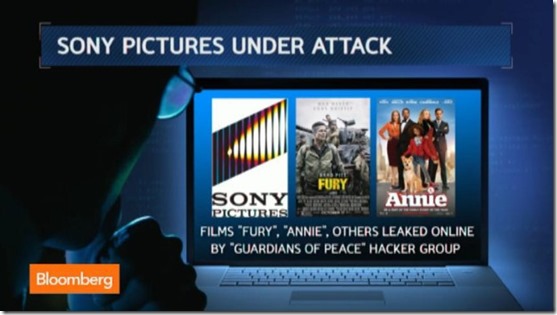Six Ways To Guard Against The "Fat Cat Backlash"
 This is a guest post by Ted Flitton, a public relations professional working in the banking industry. He is also the owner of T Communications. He lives in Calgary, Alberta.
This is a guest post by Ted Flitton, a public relations professional working in the banking industry. He is also the owner of T Communications. He lives in Calgary, Alberta.
I take no comfort in the escalating tensions between the U.S. and North Korea stemming from the hack attack on Sony Pictures, which resulted in the unauthorized release of sensitive information, reams of personal emails, and movie scripts. This crime has been described as one of the worst cases of cyber-hacking against an American company ever.
But at least now the story appears to be refocusing on the central issue of cybercrime.
Since late November, much of the media and public chose to focus on a different issue—illegally obtained leaked information—and demonized a Sony executive and a Hollywood bigwig who dished on celebrities and engaged in inappropriate racially-tinged banter. Both eventually issued apologies as people called for their heads.
Why is Sony the bad guy here? Why did so much of the public choose to attack a company which itself was a victim of a crime?
Call it schadenfreude, a “fat cat backlash,” hating the one percenters; there’s no snazzy title. But it’s clear society often shows a warped sense of morality when large organizations face crises. This misplaced outrage makes it hard for issues managers to gain control of the story and preserve corporate reputation.
Take Baltimore Ravens running back Ray Rice. Video from a hotel elevator showed him knocking his then-fiancée unconscious with a single punch. People quibbled over his then-two-game suspension while demanding the commissioner of the National Football League be fired for mishandling the situation. There appeared to be fewer appeals for Rice to lose his job than the Commissioner, although eventually the Ravens did let him go. Clearly, to the sporting public, lax leadership is a sin greater than domestic abuse.
Don’t get me wrong. Both the NFL and Sony deserve harsh criticism for their actions (or inactions). Some level of the outrage is warranted when companies allow bad situations to fester. But the issue is balance. Let’s be outraged by criminal acts while we wring our hands over failed leadership or executive arrogance.
More important, let’s use these incidents to spur crucial social change. The Rice incident made the important subject of domestic violence part of a national conversation, but sadly, only for a few days.
Public relations practitioners need to preserve corporate reputations. But we can and must shape important societal conversations where possible. So how can we guard against the fat cat backlash and maintain balance in emerging issues? A few thoughts:
- 1. Be prepared for the inevitable. Technology experts say corporations should expect they will be victimized by cyberthieves. All entities that collect and store the personal information of customers or employees need to do a better job of protecting this information and planning for disasters.
- 2. Take responsibility. The NFL rewards men for tough, physical play. This aggression should cease the moment the whistle blows, yet until recently, the league has been reluctant to admit that some men may have trouble differentiating between the locker room and the bedroom. Players do receive some domestic assault education, but many women say it’s not enough. The league should show leadership and really help families.

- 3. Form thoughtful, pro-active and all-embracing partnerships. The NFL is proud to help women fight breast cancer by partnering with Susan G. Komen for the Cure. The league recently launched an anti-domestic abuse campaign. That’s a positive move, but considering that pro sports leagues are largely built on the selfless contributions of mothers, grandmothers, aunts, sisters and wives, surely, these multi-billion dollar businesses can do more to truly honor all women.
- 4. Conduct company audits and address gaps. Rice’s two-game suspension rankled another player who received a stiffer punishment for off-season marijuana use. Imagine the goodwill generated had the NFL spotted this injustice and quietly worked to rectify it before the Rice incident.
- 5. Empower employees. Build a respectful corporate culture. Colleagues who admonish others for poisonous workplace behavior and blue chatter should be praised.
- 6. Generate goodwill. Thank supporters and engage with detractors. Return reporters’ calls and help them report stories, even if they are negative.
Taken together, these actions can help a company embroiled in full on crisis, but I fear in an age of uberoutrage their help is marginal. I turn this over to you, faithful readers of the Mr. Media Training blog. Have you experienced the fat cat backlash? How have you regained narrative balance during a corporate storm?
Ted Flitton is a public relations professional working in the banking industry. He is also the owner of T Communications. He lives in Calgary, Alberta.





